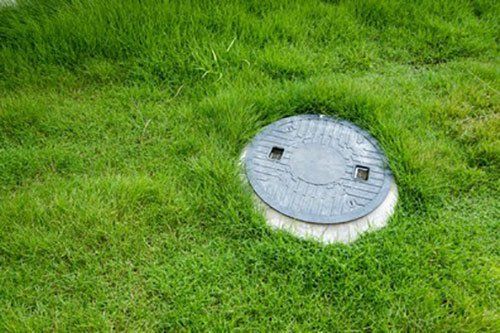
Septic systems in the United States produce over 1 trillion gallons of wastewater per year. This makes it important for every septic system owner to do their part to ensure that this wastewater is as clean and sanitary as possible when it is released into the environment.
If you are septic system owner, read on to learn how failing, or malfunctioning septic systems can harm the environment and just what you can do to keep your septic system as environmentally friendly as possible.
How Failing or Malfunctioning Systems Harm the Environment
When a septic system is malfunctioning or failing, it may not adequately remove all disease-causing bacteria from the wastewater in your home before it enters the groundwater supply where it may then flow into nearby lakes, ponds, or oceans.
This bacteria, along with nutrients also released by failing septic systems, can kill some aquatic plants that live in the bodies of water while causing overgrowth of others. This disturbs the natural balance of the aquatic ecosystem, causing many animals in the lakes and oceans to die. This bacteria can also harm the health of any human who encounters it when swimming in the contaminated body of water.
In addition, about 15 percent of the US population drinks well water, which is groundwater. When the wastewater from a failing septic system enters the ground, much of it enters the groundwater supply. If this water is still filled with hazardous bacteria, it can greatly endanger the health of nearby residents who drink well water.
The wastewater that flows out of failing septic system and saturates the ground also attracts mosquitoes and flies, just like other standing water can. These flying insects can then breed in the water and spread disease when they land on or bite people and animals.
Steps to Keeping Your System Eco-Friendly
According to the EPA, about 10 to 20 percent of all septic systems malfunction every year, often harming the environment when they malfunction, and most of these system malfunctions are due to the owners of the systems not having proper maintenance performed on them.
Take proper steps to keep your system functioning properly to prevent environmental contamination a malfunctioning system can cause.
Have Your Tank Pumped Regularly
It is very important to have your septic tank pumped on a regular basis. Experts recommend having your septic tank pumped as soon as the two layers of solids that lie at both the and bottom of your tank occupy about 30 percent of the tank's volume or less.
How often your tank accumulates this much sludge and scum vary depending on the size of your tank and how much wastewater your family regularly produces. However, as a general guideline, septic system experts recommend having these solids pumped out of your tank once every two to three years.
If you allow too many solids to accumulate in your tank before pumping it, it can clog up your drain field pipes, leading to complete drain field failure and contamination of the environment.
Obtain Regular System Inspections
According to the EPA, you should have your septic system inspected at least every three years. During this inspection, your septic tank professional will examine your septic tank for cracks and other types of damage and ensure your drain field is working properly. The pipe connecting your septic tank to your home will also be inspected for damage, along with all tank valves.
When any of these system components are malfunctioning, wastewater that hasn't been properly sanitized can leak into the ground and cause environmental contamination.
Never Drive Over Your Drain Field
Most septic system drain fields are made up of a system of underground pipes, along with gravel and other natural materials. To prevent pipe damage that can cause wastewater to contaminate the environment before it is naturally sanitized, be sure to never drive over this field with a vehicle or place any heavy items on it.
It is important for every septic system owner to keep their septic system well-maintained to ensure it does not cause environmental contamination. Contact Upstate Septic Tank, LLC
to have your septic tank pumped today.
SERVING ALL OF UPSTATE SOUTH CAROLINA
3805 HWY 417 Woodruff, SC 29388
Phone:
864-303-1601
Business Hours:
Monday - Friday: 8:30 AM - 5:00 PM
Saturday: Pumping Only
For Lift Station 24-Hour Emergency Repair Call
864-877-9015






